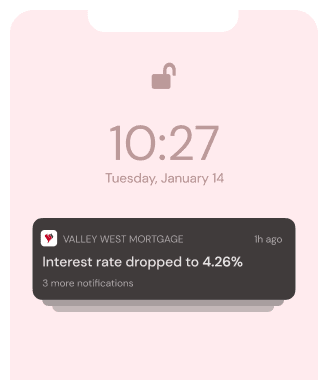Zillow - What is it? Why does Valley West Mortgage use it?
Zillow is an online real estate database, founded in 2005, that uses a proprietary algorithm called the "Zestimate" to appraise property values based on undisclosed factors. Sellers can use Zillow as a marketing tool by appraising their properties, posting property information such as improvements and access to major roads; and comparing nearby property value appraisals. Buyers can freely access and track such information online. Zillow currently tracks 72 million valuations throughout the United States. According to Alexa, a toolbar that collects data on browsing behaviors, Zillow was ranked in the top 300 U.S. sites in terms of traffic viewing the site. That is an amazing accomplishment for any website. Do you think it helps having Rich Barton and Lloyd Frink, former Microsoft executives and founders of Microsoft spin-off Expedia as their founding fathers? We Do. So basically, Zillow is a Easy and Simple way for potential home buyers to look at the value of properties and find a reliable source of information as well as find local, trusted real estate agents as certified mortgage lenders.
Now that you have a good idea of what Zillow is, Why does Valley West Mortgage use the site? To answer your question, lets take a look at the Valley West Mortgage Zillow Page. Once a potential buyer finds a home they like, its time to find a lender. Zillow has a Lenders Section to their website, allowing potential home buyers access to find a Local Las Vegas Lender that best suites their needs and interests. That is the section where you will find Valley West Mortgage | Local Las Vegas Lender.
So now you know what Zillow is and why Valley West Mortgage uses it.
Tell all of your friends and family members to
check out Zillow and Valley West Mortgage on Zillow.

